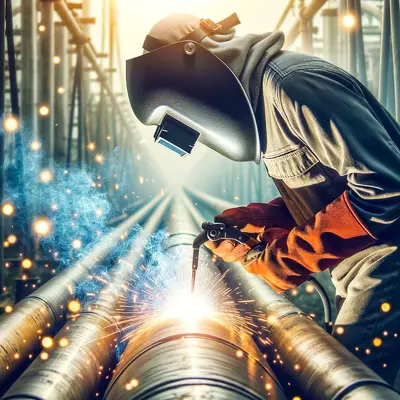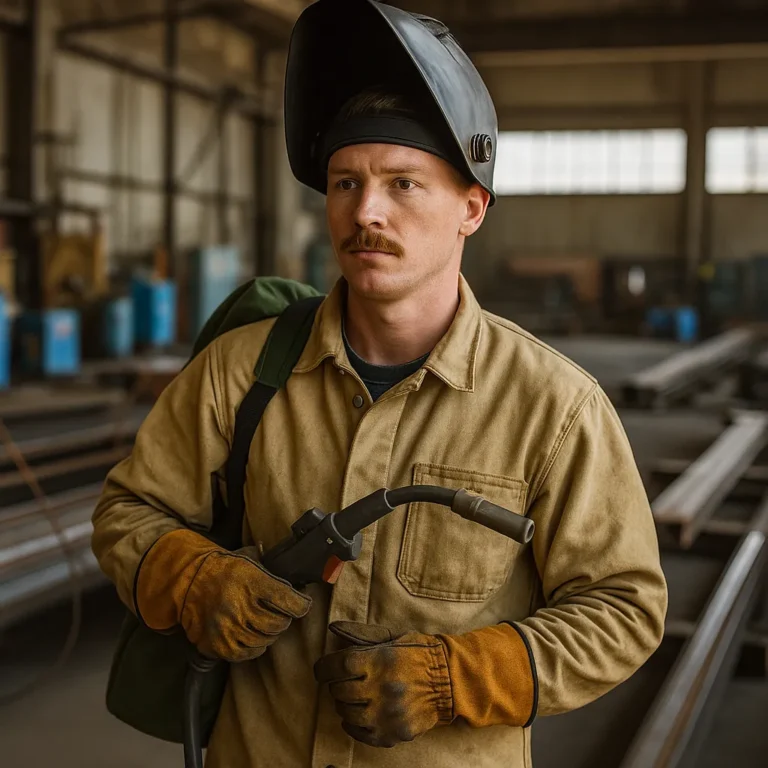How Much Do Welders Make on the Pipeline? Exploring the Highs and Lows

Disclosure: This post contains affiliate links. As an Amazon Associate, I earn from qualifying purchases—at no extra cost to you.
Pipeline welding isn’t for the faint of heart. It’s grueling work, often in remote, rugged environments, requiring precision, grit, and a willingness to chase the horizon. But for many skilled tradespeople, the payoff is worth every mile of muddy boots and every bead of sweat. So, how much do welders actually make on the pipeline? Let’s break it down.
The High Stakes (and High Pay) of Pipeline Welding
Pipeline welders are in a league of their own. They’re responsible for fusing critical infrastructure that transports gas, oil, and other resources across the country. These are no run-of-the-mill jobs—you’re talking full-penetration welds on thick-walled pipe, often under X-ray inspection standards.
Because the quality of the weld literally keeps everything flowing (and prevents dangerous leaks), pipeline welders command some of the highest salaries in the welding industry.
On average, pipeline welders in the U.S. can earn between $70,000 and $150,000 annually. And that’s just base pay. With overtime, per diems, and bonuses for remote work or hazardous conditions, total earnings can exceed $200,000 per year for top-tier welders.
Factors That Influence Pipeline Welder Salaries
Experience and Certifications
Just like any trade, more experience means higher pay. Entry-level helpers may start closer to $20–$25 per hour, but seasoned welders certified under API 1104 or AWS D1.1 often see $40–$60 per hour, sometimes more. Add in 60–70 hour workweeks, and those numbers climb fast.
Location and Type of Project
Wages vary dramatically based on geography and the project’s scope. Welders on major transmission lines in Alaska or the Texas oilfields are often paid more than those working local distribution lines in urban areas. Cross-country or international pipeline work can offer even steeper wages—and adventure to match.
Union vs. Non-Union
Union pipeline welders typically benefit from negotiated wages, better job security, and healthcare. In contrast, non-union welders might take home a higher short-term paycheck but often lack those long-term benefits. Both paths are lucrative—just different in structure and stability.
A Day in the Life: More Than Just Money
Yes, the money is great—but pipeline welding isn’t a cakewalk. Welders may find themselves living in trailers or company housing, enduring extreme temperatures, or working in isolated areas with little contact from the outside world. The job demands physical strength, mental toughness, and surgical-level precision with a torch.
Yet for many, the lifestyle becomes part of the appeal. The camaraderie among welders, the pride in skilled craftsmanship, and the satisfaction of being part of massive, vital infrastructure projects create a career path that feels more like a calling.
Is Pipeline Welding Worth It?
If you’re driven, skilled, and not afraid to travel, pipeline welding can be one of the most rewarding—and financially secure—careers in the trades. It’s not just about chasing big paychecks; it’s about building the backbone of energy and transport in North America.






